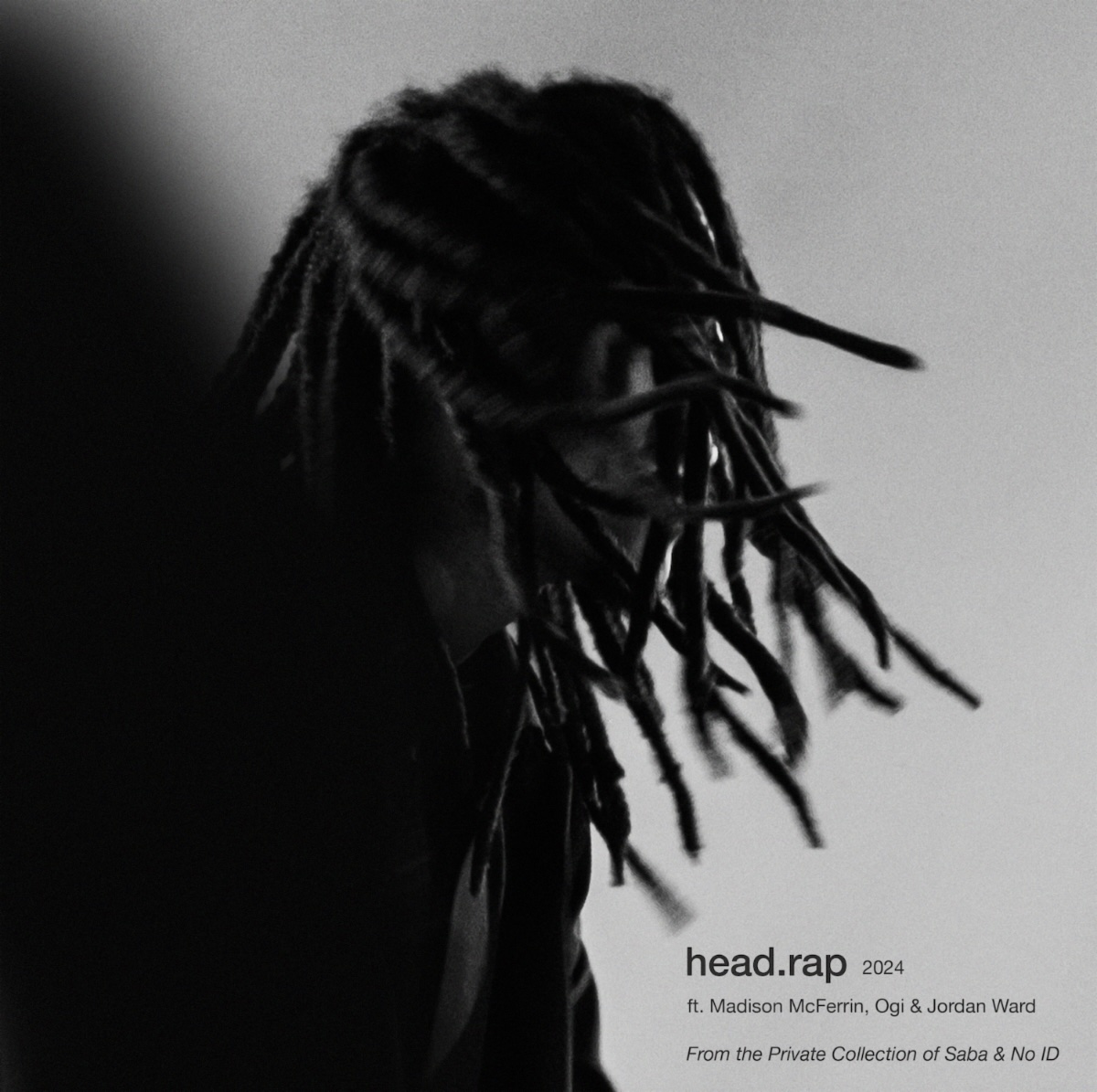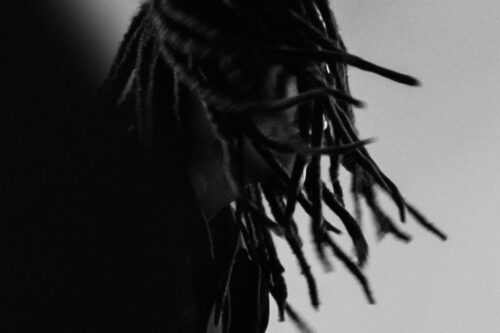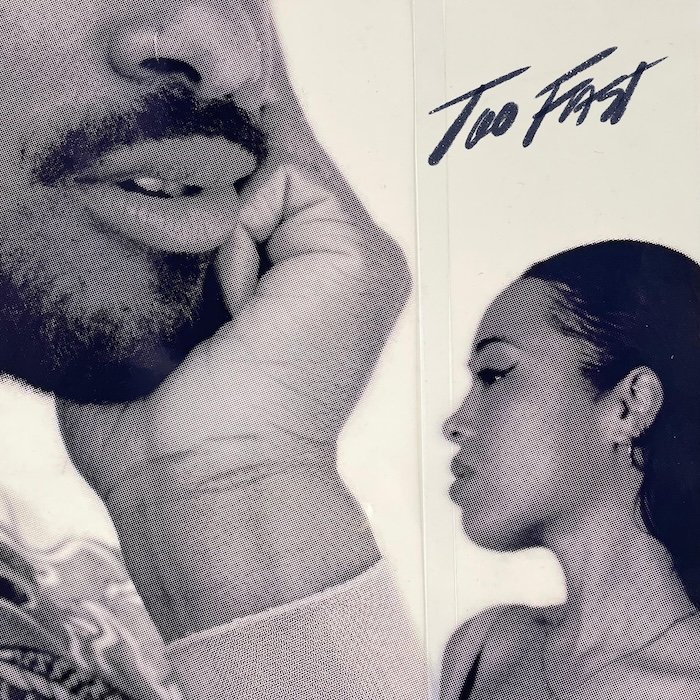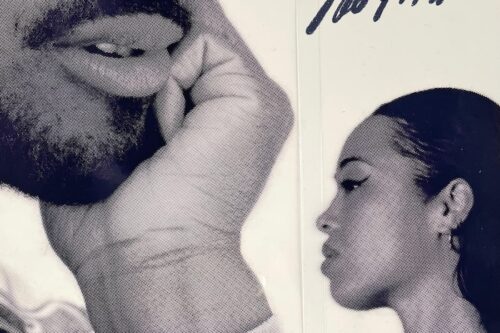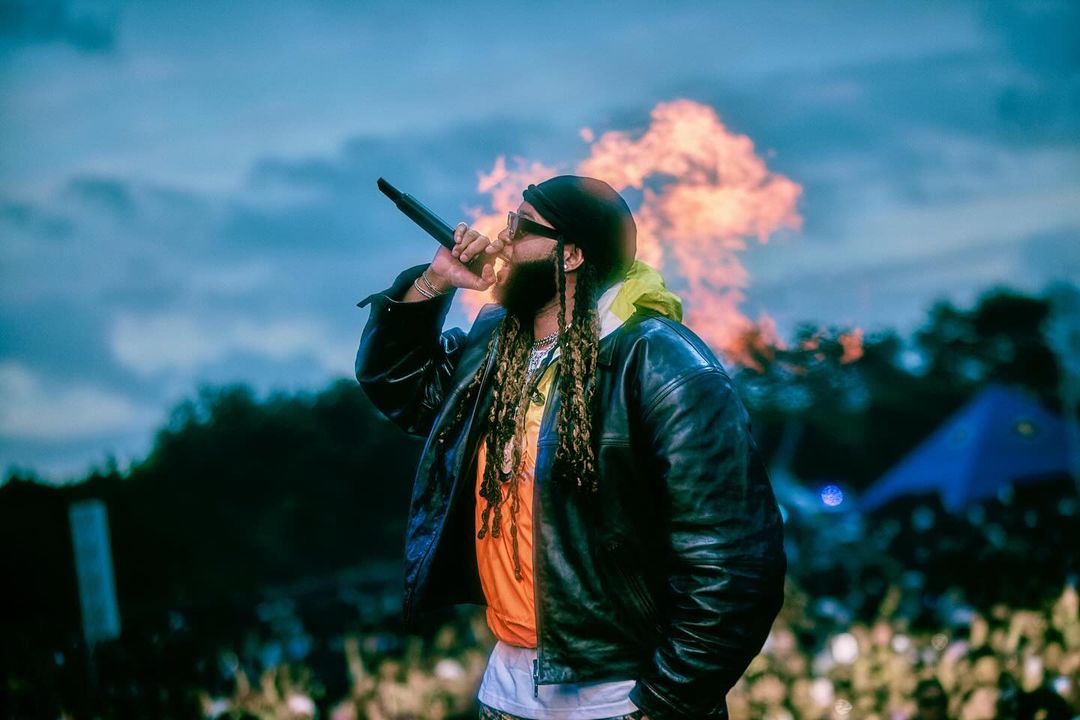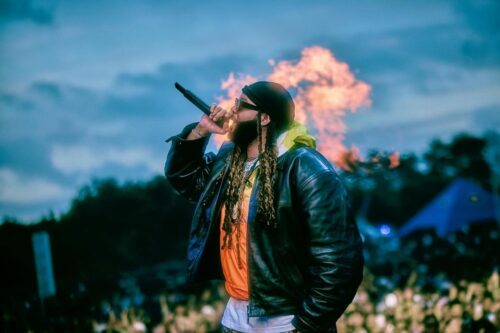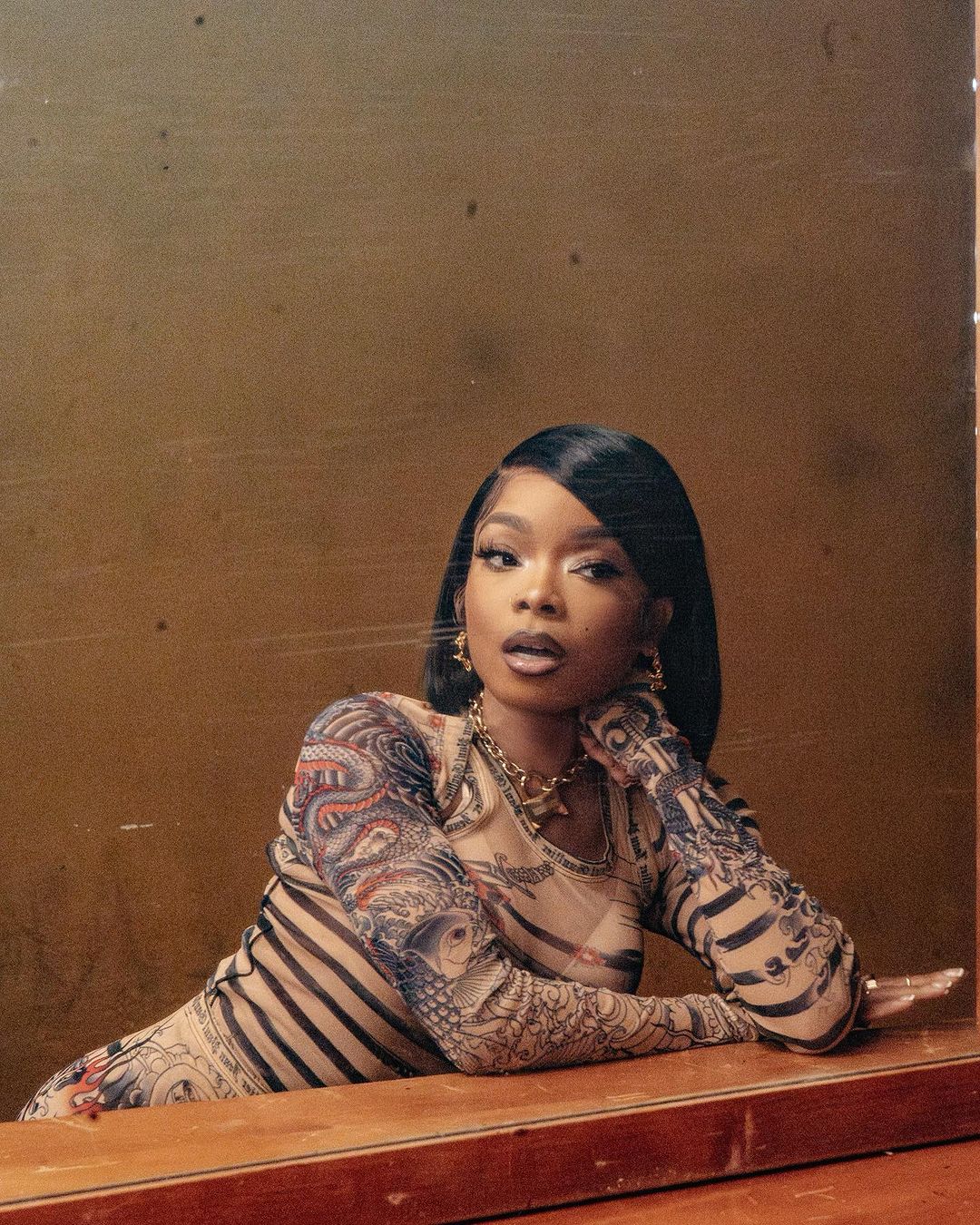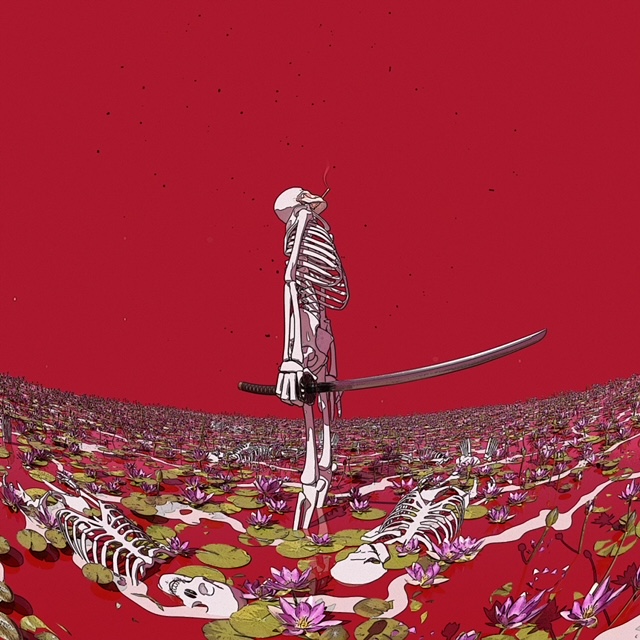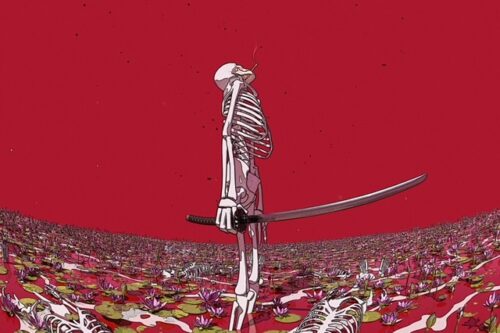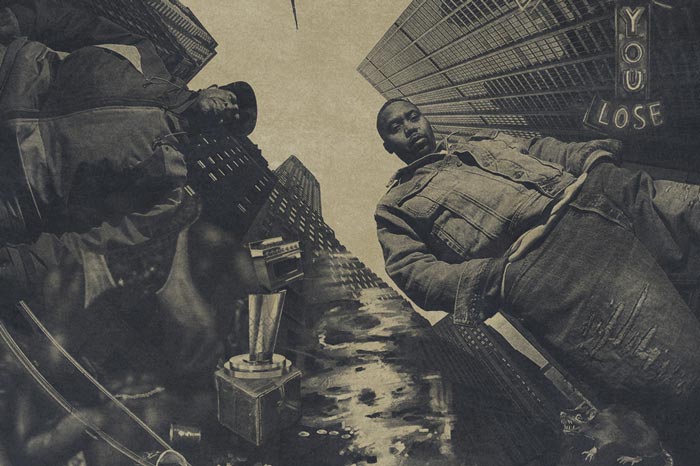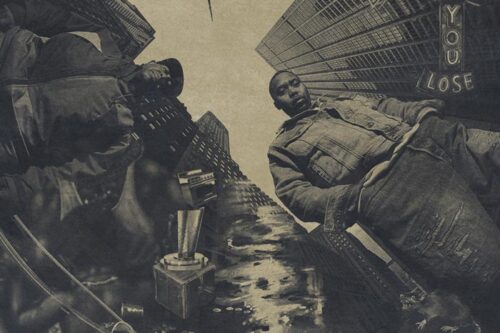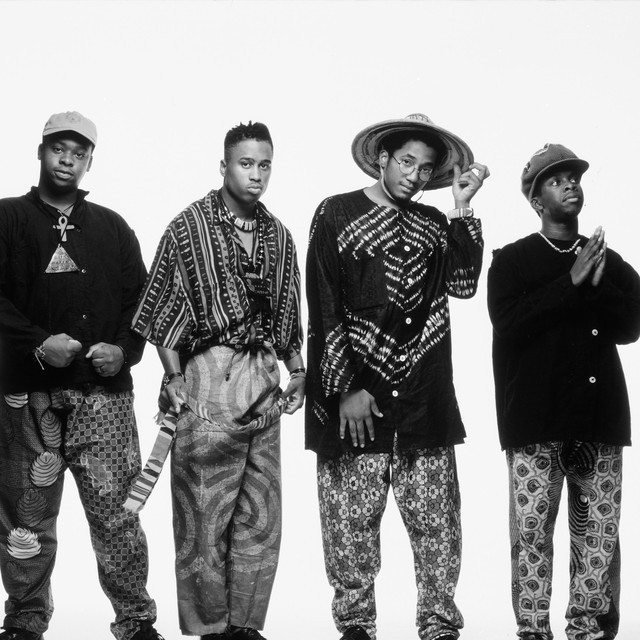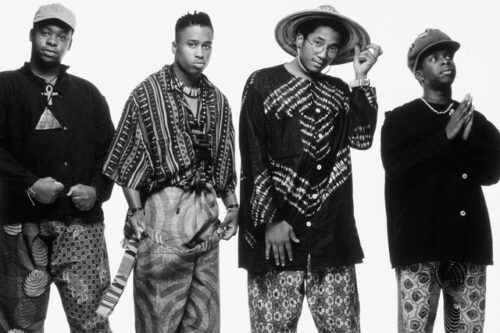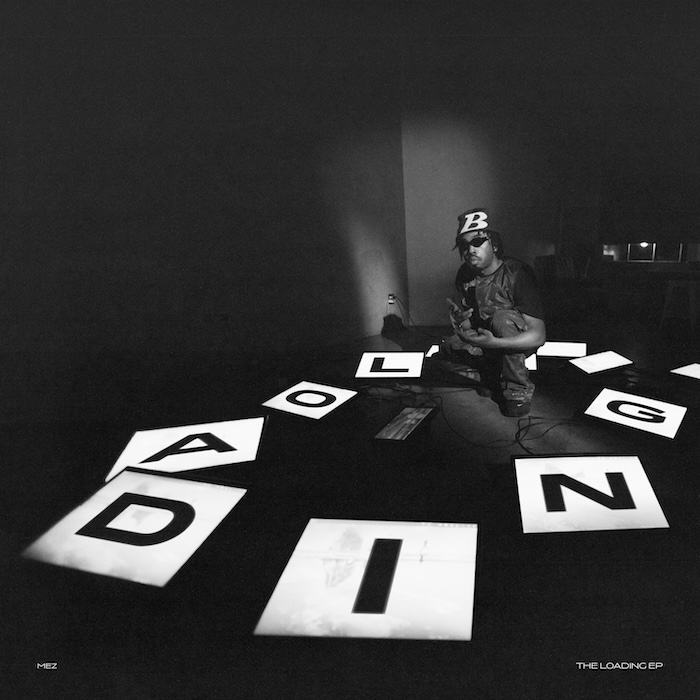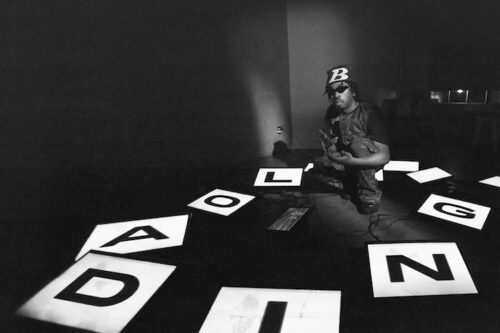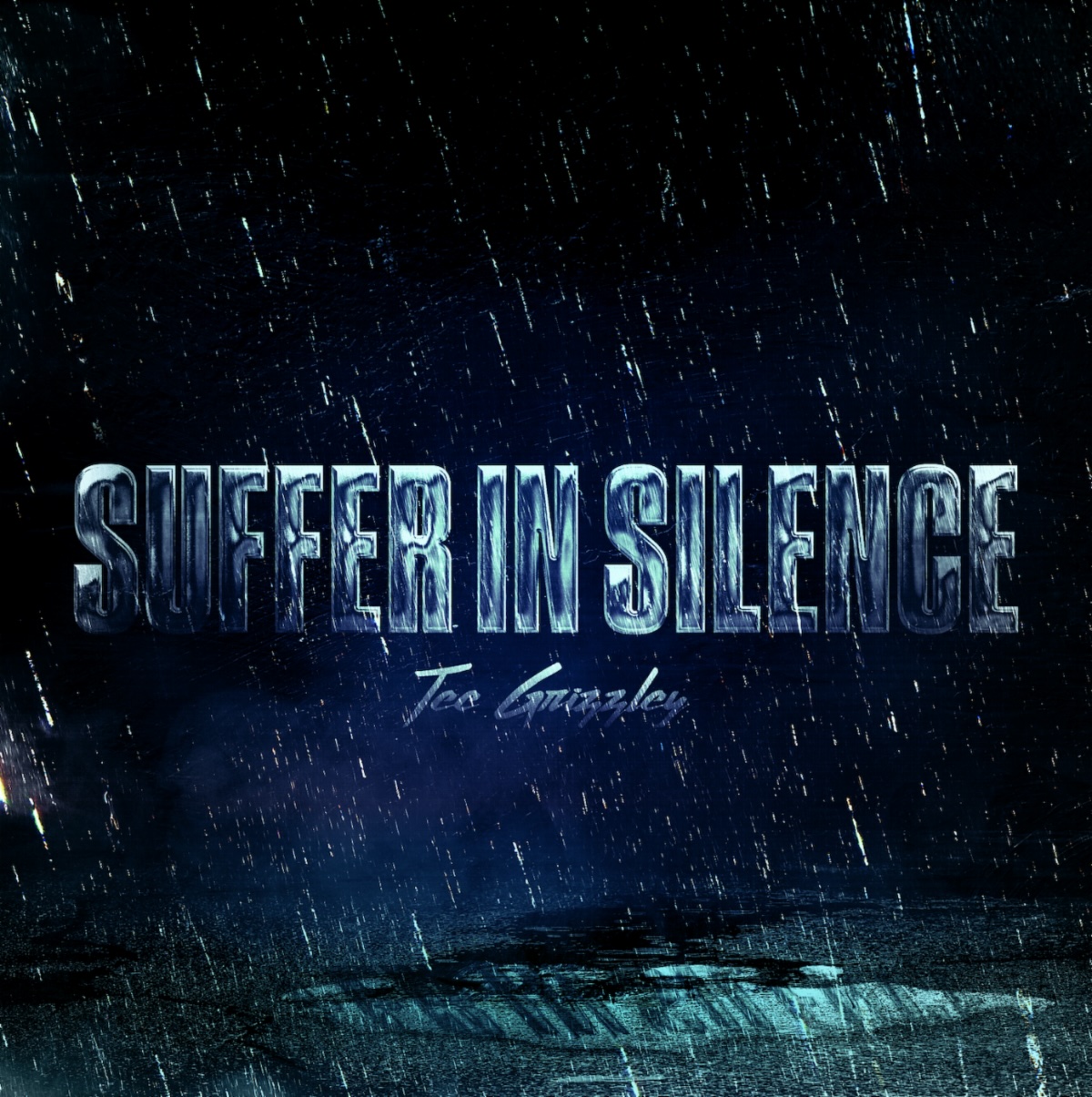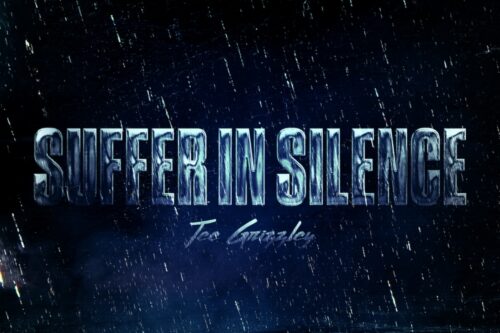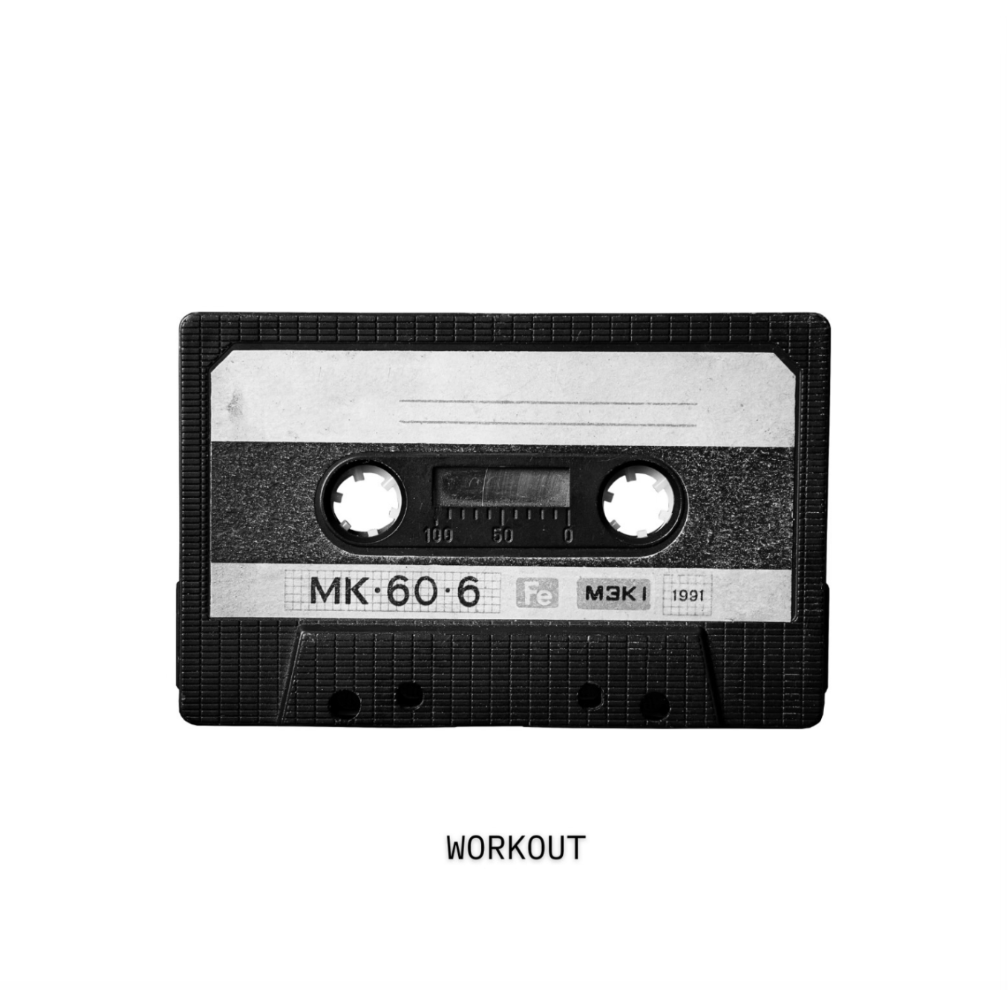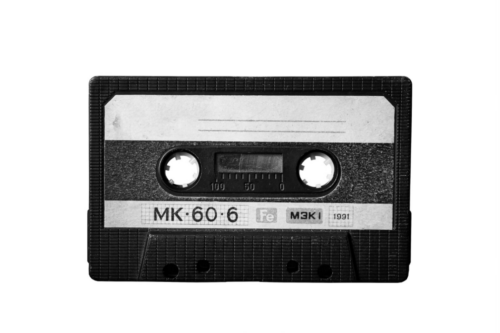
In the midst of these overwrought think pieces on Kendrick Lamar’s latest album and the never-ending debate on social media regarding his place among Hip Hop’s greats, there’s one thing that isn’t up for discussion.
9th Wonder is on the short list in the greatest producer of all-time conversation.
The very short list. The “you need a wristband and can’t get past the velvet rope with them shoes on” list.
Yes, that short rotating list that includes the likes of DJ Premier, J Dilla, Pete Rock, Dr. Dre, Kanye West, Just Blaze, Madlib and a few others.
You can even go as far to say that 9th Wonder belongs on Hip Hop’s Mount Rushmore of producers. And a lot of producers would be butthurt by the inclusion of a producer who entered the game without playing industry games.
But the Internet won’t let him be great. The very Internet that helped shape the narrative of 9th Wonder’s legendary status has also managed to inadvertently devalue his craft. It’s a fascinating study on how the Internet has the power to build and destroy without conscience.
Let’s start at the beginning.
Back in 2003, the writer whose words you are currently reading was disenchanted with rap music. The sounds of Lil Jon, Chingy, Nelly, 50 Cent (who essentially adopted everything we hated about Ja Rule) were inescapable. And while their existence was welcome, the lack of balance was conspicuous.
But the Internet was changing how we discovered music with websites such as Sandbox Automatic, Underground Hip Hop and HipHopSite around to help facilitate the process. Artists who didn’t necessarily fit the mold of the mainstream and weren’t the beneficiary of a celebrity cosign began to build followings off the strength of their music.
As a self-proclaimed lurker on the Okayplayer message boards, I stumbled upon a song by a group I had never heard of from North Carolina. The song was “Whatever You Say” and the group was Little Brother. Being so desperate for something that resembled the Tribe era, I decided to hit play on what was probably a RealPlayer link.
Once the sample for Cleo Laine’s “I Believe You” hit my eardrums, my life would be forever changed.
And I don’t mean that in a hyperbolic way. This is in the literal sense.
The soulful production of 9th Wonder provided an air of nostalgia for anybody who had their backpack strapped on too tight while the relatable rhymes from Phonte and Rapper Big Pooh countered the rappers on the radio who were rhyming way above the blue collar worker’s tax bracket.
For something that was so aurally brilliant, the fact that it was created by a trio from North Carolina who recorded in a friend’s apartment-turned-studio was inconceivable. But it was also a beacon of hope for those of us who weren’t living in New York, California or Atlanta. It broke down the barrier between the industry and individual and truly displayed the power of the Internet.
Fun Fact: The first article I ever had published was a review for Little Brother’s The Listening. It was written because I believed so deeply in the project and was frustrated by the lack of mainstream coverage. That review led me to writing for HipHopSite, which led me to the Editor in Chief position at HipHopDX, where I would meet two guys you may know as Shake and Meka who shared a similar interest in music. The mission of bridging the gap between underground and mainstream coverage would prove to be fruitful as it laid the foundation for what HipHopDX is today. Our friendship, love of hip hop and the art of discovery eventually led Meka and Shake to birth 2DopeBoyz while I ventured off to an executive position at BET and contributed to some prominent publications before eventually finding my way back to the 2Dope family. Not bad for a kid from Las Vegas.
I’ve got 9th Wonder, Phonte and Big Pooh to thank for that.
Here’s why this story is significant to this particular column.
Little did I know that my narrative was very much like so many others who aspired to make it in the music business. The next generation of emcees and producers I would interview would all speak highly of Little Brother and 9th Wonder’s production. We would trade stories about how Little Brother changed the game and how many of us wouldn’t be where we are today if it weren’t for the doors that they opened.
(I can write an entire column on Phonte’s influence, but that’s for another day.)
What was also inexplicably mind blowing was the fact that 9th Wonder made all of those brilliant beats using a computer program. The fact that he was able to chop those soul samples so succinctly using Fruity Loops brought to fruition the idea that you don’t need an MPC to be the next great producer. With a wifi connection and a laptop, you had just as much opportunity as Pete Rock and DJ Quik.
RELATED: Rhythm Roulette w/ 9th Wonder
That concept changed the game forever and spawned an entire generation of producers who were influenced by 9th’s inexpensive instruments of production. And every young emcee I spoke with had freestyled over 9th Wonder instrumentals and openly longed for the day they could rock over that signature soul chop that 9th has mastered like no other.
Timing is everything. I came along at a time where I just infiltrated the Internet with my music. Now the Internet is flooded. Now, truly, everybody is a producer. You got all type of people with beat machines in their house…they think it’s easy. It’s never the machine. It’s the man behind the machine.
The industry walls were broken down by 9th Wonder and Little Brother. The great part about this was that opportunities opened up creative minds across the globe to make music. The bad part was that it subsequently flooded the industry with garbage from people who thought they could make a quick buck in the rap game. Without 9th Wonder you arguably wouldn’t have had a Jahlil Beats, Boi-1da, Lex Luger, Hit-Boy, DJ Mustard and Mike Will Made It. 9th’s influence indirectly also delivered us Kendrick Lamar, J. Cole, Drake, Wale, Mac Miller and others.
Either way, 9th Wonder was a pioneer to the new era that totally made us rethink what it took to be dope.
Little Brother was, quite literally, this generation’s version of A Tribe Called Quest and an entry point for many into producing and emceeing. More importantly, they were pioneers for the Internet era and redefined how we create and consume music.
With the influx of emcees birthed from the early stage of the Internet era taking over the industry, they could finally call upon 9th Wonder’s production for the most significant moments of their musical career and cross it off their bucket list.
That’s the reason why we’re here talking about 9th Wonder’s magnificent contribution to Kendrick Lamar’s epic narrative “Duckworth” off of DAMN! The emcee formally known as K Dot was one of many who grew up on 9th Wonder’s soundscapes.
@9thWonderMusic classic. Would be an honor if u blessed me with one man. Jus one. To prove I'm capable of rockin over a 9th joint.
— Kendrick Lamar (@kendricklamar) August 20, 2010
Although his influence is arguably unparalleled when it comes to producers in the last 15 years, his name is rarely brought up when it comes to the greatest hip hop producers of all-time. That’s damn near blasphemous considering what he’s accomplished during his tenure.
First and foremost, we tend to overlook the fact that 9th Wonder has maintained relevancy for 15 years and has been involved in some pretty significant projects without ever having to compromise his signature sound. And, let’s be honest, to remain relevant for five years in the current era is an accomplishment in itself. But to have some of the most respected artists of our lifetime call 9th Wonder for a moment of musical significance is something that cannot be overlooked.
When Little Brother was hoping to make a living off of hip hop, 9th Wonder was called upon by Jay Z to share production credits on his supposed swan song The Black Album with the likes of Kanye West, Swizz Beatz, Just Blaze, DJ Quik, Rick Rubin, The Neptunes and Timbaland. Nobody gets plucked from pop culture obscurity like that unless they are special.
Drake has openly praised 9th Wonder and Phonte for being some of the biggest influences on his career. Although he apologized for not featuring the duo on Take Care, Drake has worked with 9th Wonder in the past on “Think Good Thoughts.” Kanye West has also sang the praises of 9th Wonder when he worked with them on “I See Now.”
Fourteen years after taking home a Grammy for The Black Album, 9th Wonder was called on again by another emcee that has been considered a living legend to provide the backdrop for what has been deemed the standout track from one of the most talked about albums of the year.
But that’s not what makes 9th Wonder a legend. It’s everything between Jay Z and Kendrick Lamar that has garnered him membership in this exclusive club of producers without ever having to step into the building to brownnose his way to the top.
Name another producer whose production credits range from Jay Z and Destiny’s Child to Masta Ace and Buckshot to David Banner and Ludacris to Jill Scott and Erykah Badu to Anderson .Paak and Mary J. Blige to Termanology and Rapsody.
More importantly, 9th Wonder has reached that stage in his career where you don’t need to read the credits to know his production. In a similar fashion as DJ Premier, you know a 9th Wonder beat when you hear it and he doesn’t need to watermark his production with “9th Wonder Made It” or “9th Woooooooonda!!!!”
It’s soul. It’s boom bap. It’s hip hop. It’s 9th Wonder.
But it’s the very era that ushered in the Internet as the vehicle of change that has also cheapened terms such as “classic” and “legend.” The Internet sped up the process from creation to consumption. The concept of a release date and an album review by a noteworthy journalist that was released before the album dropped died a painful death. In turn, it has forced everything to move faster and has caused ADD among hip-hop fans. Great albums get overlooked and decent albums are nuked by the media to be better than what they are because of a vicious 72-hour window of relevancy that an album has. According to Wikipedia, 108 hip-hop albums were released in 2003. In 2016, a whopping 86 albums were released between January and February. By watering down the process, it’s difficult to define what will stand the test of time versus what will be forgotten about in several weeks.
Another issue is that particular era is one that has yet to be documented in books, film and TV like Hip Hop’s Golden Era and the 90s. It exists but doesn’t have a stamp of approval by historians.
For that reason, 9th Wonder often gets caught in the music’s Stranger Things version of the Upside Down. He’s too old to be a part of the new movement but too young to be considered a legend by his peers. Journalists at esteemed outlets aren’t familiar with his work because they are either too lazy or too overwhelmed by the demands of the music industry as well as being a slave to pageviews.
Under no uncertain terms, 9th Wonder is a byproduct of an era of music that refuses to call him one of the greats out of envy or ignorance.
So when 9th Wonder “pops” up on Kendrick Lamar’s album – and I use the term “pops up” loosely because he’s been consistently delivering greatness, some of y’all just haven’t been paying attention – the internet is quick to scramble and try to become an expert on all things 9th Wonder in less than 24 hours. It’s partially insulting and wholly impossible. But it’s also the reason why suspect compliments such as “’Duckworth’ is 9th Wonder’s best beat” have been casually floating across our Twitter timelines.
Really?
Have you not heard De La Soul’s “Church” or Masta Ace’s “Good Ol’ Love” or Murs’ “Walk Like A Man” or Skyzoo’s “The Beautiful Decay” or Jean Grae’s “Don’t Rush Me” or Ludacris’ “Do The Right Thing” or damn near the entire Little Brother catalog?
If you’ve been paying attention, 9th Wonder has been the backbone of some pretty significant projects for over a decade. Aside from his groundbreaking work with Little Brother, he re-introduced the industry to “one rapper, one producer” projects from the likes of Murs, David Banner, Jean Grae, Buckshot, Wale and Talib Kweli. His full-length remixes of Nas’ God’s Son and Jay Z’s The Black Album and American Gangster were all hot commodities. Not to mention that he has been responsible for Anderson .Paak’s “The Season,” Erykah Badu’s “Honey” and Jill Scott’s “Beautiful Love.” What other hip hop producer do you know that has credits on a Destiny’s Child album but will turn right around and produce an entire project for a little known artist?
Singing 9th Wonder’s praises now are like bringing flowers to his funeral so he can smell them. In reality, acknowledgment of his greatness should have happened years ago. So while this newfound celebrity that 9th Wonder is experiencing from a generation of fair-weather rap fans is refreshing to see, it’s also chained to a moment rather than an extraordinary catalog of music.
The sum of all the parts is that 9th Wonder is worthy of GOAT status. Everything that is considered normal today – from producing classic albums in your bedroom to touring off of music posted on the Internet – was pioneered by 9th Wonder. And, on top of all that, the music is dope?
C’mon now, give the man his long, long, long overdue credit as one of the best to have ever done it and don’t let any simpleton on the Internet tell you otherwise.

+ You Don’t Hate J. Cole, You Hate His Fans +
+ Is Eminem Overrated? +
+ Kendrick Lamar Is The Best Emcee Of The Digital Era [2011] +

